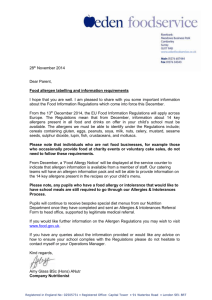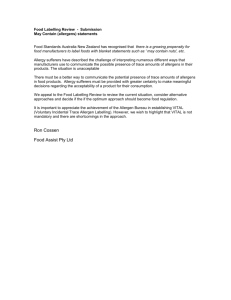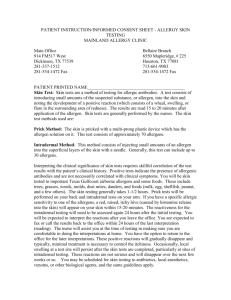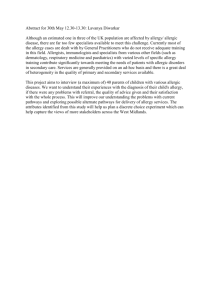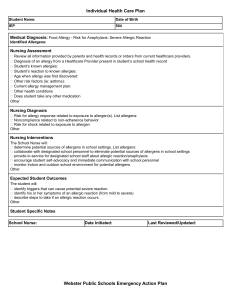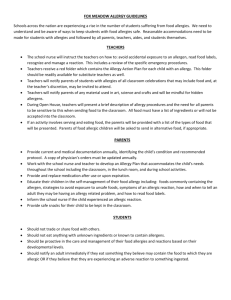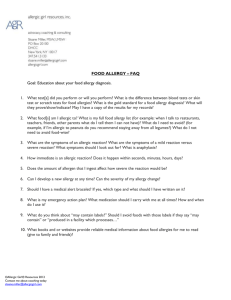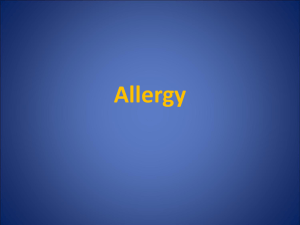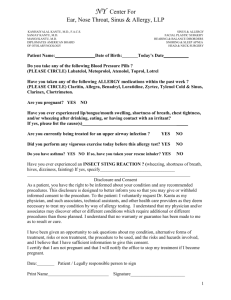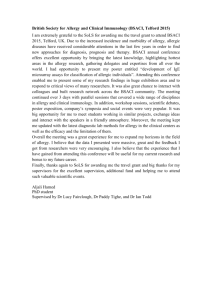Information and Informed Consent
advertisement
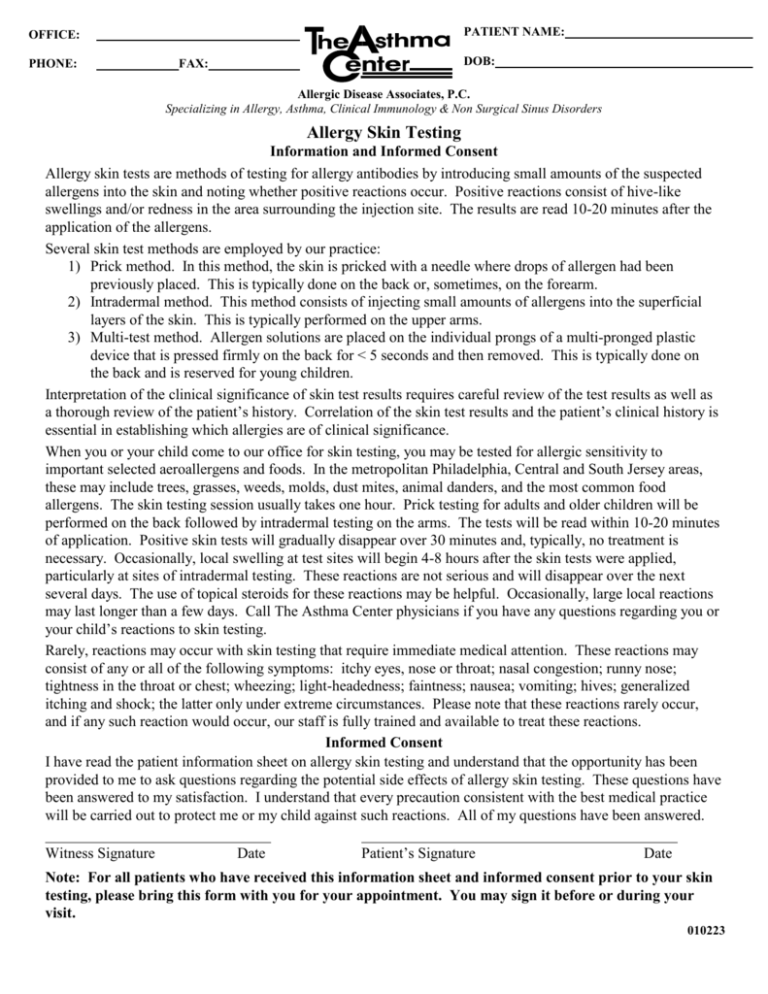
PATIENT NAME: OFFICE: PHONE: DOB: FAX: Allergic Disease Associates, P.C. Specializing in Allergy, Asthma, Clinical Immunology & Non Surgical Sinus Disorders Allergy Skin Testing Information and Informed Consent Allergy skin tests are methods of testing for allergy antibodies by introducing small amounts of the suspected allergens into the skin and noting whether positive reactions occur. Positive reactions consist of hive-like swellings and/or redness in the area surrounding the injection site. The results are read 10-20 minutes after the application of the allergens. Several skin test methods are employed by our practice: 1) Prick method. In this method, the skin is pricked with a needle where drops of allergen had been previously placed. This is typically done on the back or, sometimes, on the forearm. 2) Intradermal method. This method consists of injecting small amounts of allergens into the superficial layers of the skin. This is typically performed on the upper arms. 3) Multi-test method. Allergen solutions are placed on the individual prongs of a multi-pronged plastic device that is pressed firmly on the back for < 5 seconds and then removed. This is typically done on the back and is reserved for young children. Interpretation of the clinical significance of skin test results requires careful review of the test results as well as a thorough review of the patient’s history. Correlation of the skin test results and the patient’s clinical history is essential in establishing which allergies are of clinical significance. When you or your child come to our office for skin testing, you may be tested for allergic sensitivity to important selected aeroallergens and foods. In the metropolitan Philadelphia, Central and South Jersey areas, these may include trees, grasses, weeds, molds, dust mites, animal danders, and the most common food allergens. The skin testing session usually takes one hour. Prick testing for adults and older children will be performed on the back followed by intradermal testing on the arms. The tests will be read within 10-20 minutes of application. Positive skin tests will gradually disappear over 30 minutes and, typically, no treatment is necessary. Occasionally, local swelling at test sites will begin 4-8 hours after the skin tests were applied, particularly at sites of intradermal testing. These reactions are not serious and will disappear over the next several days. The use of topical steroids for these reactions may be helpful. Occasionally, large local reactions may last longer than a few days. Call The Asthma Center physicians if you have any questions regarding you or your child’s reactions to skin testing. Rarely, reactions may occur with skin testing that require immediate medical attention. These reactions may consist of any or all of the following symptoms: itchy eyes, nose or throat; nasal congestion; runny nose; tightness in the throat or chest; wheezing; light-headedness; faintness; nausea; vomiting; hives; generalized itching and shock; the latter only under extreme circumstances. Please note that these reactions rarely occur, and if any such reaction would occur, our staff is fully trained and available to treat these reactions. Informed Consent I have read the patient information sheet on allergy skin testing and understand that the opportunity has been provided to me to ask questions regarding the potential side effects of allergy skin testing. These questions have been answered to my satisfaction. I understand that every precaution consistent with the best medical practice will be carried out to protect me or my child against such reactions. All of my questions have been answered. Witness Signature Date Patient’s Signature Date Note: For all patients who have received this information sheet and informed consent prior to your skin testing, please bring this form with you for your appointment. You may sign it before or during your visit. 010223
